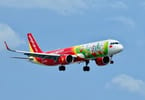HAPPY INDEPENDENCE DAY
Uganda was celebrating her 46th Independence Day on 09th October, commemorating the day when it attained full independence from the former colonial master Great Britain. As always, the nation took a day off to join the party with many extending the Thursday holiday into a very long weekend, visiting their upcountry homes or retreating for some R&R to the national parks and game reserves, where lodges and camps reported brisk business from Ugandans and expatriate residents. Security across the city was stepped up to ensure the revellers could enjoy a safe celebration environment.
Since taking power in January 1986, when the National Resistance Army led by President Yoweri Kaguta Museveni drove the last of the former dictators out of Kampala, the country under the NRM government has undergone a well near miraculous revival and the steadfast economic policies have aided political stability, reconstruction of infrastructure and sustained growth ever since. We proudly celebrate ‘Uganda – Gifted by Nature’. Visit the Ugandan exhibition stand at the forthcoming WTM to learn more about this outstanding ecotourism destination or look up the following important and useful websites: www.visituganda.com, www.uwa.or.ug, www.theeye.co.ug, www.africa-ata.org and www.traveluganda.co.ug
FLY540 UGANDA BRINGS IN AIRCRAFT
Having been granted an AOC by the Ugandan Civil Aviation Authority – an expensive duplication of a process already in place in Kenya but required by stubborn regulators still unwilling or unable to delegate part of their oversight and control functions to another East African Community member state CAA – Fly540 has now acquired and put on the Ugandan registry initially two converted F27 freighters, which will operate out of Entebbe into the region and provide sufficient capacity to cater for transit air cargo destined beyond Entebbe. Often times in the past cargo reached Uganda by air through European or Middle Eastern airlines on pallets, but then had to be delivered by truck to its final destination in Eastern Congo or Southern Sudan due to lack of adequate palletized or loose cargo capacity on onwards flights. This problem has now finally been solved to the relief of air cargo agents in Entebbe.
News are also expected on passenger operations originating from Uganda’s main aviation gateway, so watch this space for breaking news on Fly540’s plans.
BRUSSELS AIRLINES EXTENDS ETIHAD CODESHARE
Information was received from SN sources that the main Belgian airline, of late the newest member in the Lufthansa family, has extended their codeshare arrangements with Abu Dhabi’s flag carrier Etihad. The Gulf airline can now offer ‘through’ tickets for their four weekly flights to Brussels to connect their passengers to the Scandinavian capital cities of Oslo, Copenhagen, Stockholm and Helsinki. All connecting flights will be operated on Brussels Airlines equipment.
Brussels Airlines also confirmed that their tie up with Lufthansa and eventual entry to Star Alliance, the world’s leading global airline alliance, will have no affect on their present contracts and long term cooperation plans with Jet Airways. For the coming winter season around 20 European destinations connect Jet Airways passengers within two hours of landing in Brussels through SN flights, a substantial increase from the previous schedule. The cooperation is expected to initially feed some 6.000 passengers a month to Brussels Airlines flights and these numbers are expected to increase further by 2009.
AIR UGANDA NOW GOES DAILY TO JUBA
Information was received that Air Uganda has upped their frequencies from 5 per week to daily flights between Entebbe and Southern Sudan’s capital Juba. Load factors on this particular route show the best performance within their route network, justifying the extra flights.
Royal Daisy Airlines in the meantime is still without their Embraer 120, which also plied the route with daily flights but is now undergoing heavy maintenance with no replacement aircraft in sight as of going to press. Third contender on the route, Eagle Air Uganda, reduced their scheduled flights to three times a week via the Southern Sudanese town of Yei, basically leaving the profitable Juba route without serious competition at this time. Eagle Air however has commenced scheduled operations to Bunia in Eastern Congo using Beechcraft 1900B and LET 410 aircraft. Brussels Airlines has also recently signed an agreement with Air Uganda to cater for connecting passengers in Entebbe to and from Juba.
NEW AVIATION VENTURE FOR UGANDA
Skyjet, a new airline licensed earlier in the year, has finally secured an AOC according to reliable sources from the Civil Aviation Authority in Entebbe. They reportedly intend to begin operations with an ancient B737-200, not the most credible of options for a start up airline in this day and age. The new airline has sought permission to also fly on the Entebbe – Juba route before expanding to other regional destinations. No other details on their future plans are presently available.
ETHIOPIAN OFFERS OUAGADOUGOU
Information received from the ET offices in Kampala indicates that from end October onwards they will fly six times a week from Addis to the West African destination, using a B757 aircraft. The flights will be routed via Accra and Abuja, although Lome is also still a possibility for a stopover.
Ethiopian Airlines, together with Kenya Airways, offer the most comprehensive inter African networks and are largely responsible to not only connect Africa within but also connect Africa to the rest of the world.
DATES SET FOR MARATHON
The annual ‘MTN Kampala Marathon’ will this year take place on 23rd of November. Participants from abroad can register online via www.mtnkampalamarathon.co.ug or send an email for more details to [email protected]. Registration is open until 31st of October and the cost for individual entries and teams can be obtained on the official website. The Kampala Marathon is one of the annual ‘must see’ sporting events and has established itself over past years in Eastern Africa as a premier event. Much of the proceeds this year will go towards supporting formerly displaced people in the North of the country, who have now returned to their home areas and are beginning to rebuild their lives which were disrupted by the LRA terror gangs.
SSISSA CLUB TO HOST ‘WOODSTOCK MEMORIAL’
The Ssissa Club, located not far out of the city along Entebbe road, will be hosting on 26th and 27th October a weekend music festival, featuring the music which marked the initial ‘Woodstock’ festival of the late 60’s. The fete will start mid day on Saturday the 26th and last through the night until mid day Sunday. Admission is for ticket holders only due to limited space and the accommodation at the club is reportedly already sold out, although camping sites are available for those bringing their own tents.
For more information write to Nari Patel at [email protected] or call +256 772 777727.
MORE EFFORTS TO UNITE EAST AFRICA
Negotiations between the 5 EAC memberstates went on during the week in Kampala aimed to reach agreement on the next protocols governing the common market, freedom of movement of capital, labour and people and common transportation policies. In a commendable development Tanzania had a week earlier consented to remove restrictions place on other EAC citizens wishing to work or live in Tanzania, seen as an important step towards eventually lifting all existing internal boundaries and making East Africa truly one common area for citizens and visitors alike. The East African ‘domestic market’ is to come into effect by 2010 and will include over 120 million people.
KENYA AIRWAYS BREAKS NEW GROUND – AGAIN
In a ground breaking investment for Eastern Africa the Kenyan flag carrier has now ordered for the installation of a B737 flight simulator at its Embakasi base, where it has also put up a state of the art training academy and centre, as they strive to meet the highest global standards in piloting, maintenance, in flight service and ground handling operations. The investment is thought to safe the airline substantial amounts of money in coming years as they further expand both fleet and network and training of pilots and other staff has to increase.
KENYA DEPORTS OBAMA CRITIC
If you intend to speak out against Senator Obama, best don’t consider doing it in Kenya! Jerome Corsi, the American author of the book ‘The Obama Nation’, apparently highly critical of Obama, was ejected from the country ahead of the formal launch of the book at the Grand Regency Hotel in downtown Nairobi. In doing so the Kenyan authorities not only showed a remarkable intolerance to the freedom of expression but also in fact unwittingly played into the hands of the author and his publishers, by giving global exposure to the hitherto little known book by creating headline news around the world. The author’s handlers in Kenya reaffirmed that all legal requirement for the visit were fulfilled, i.e. Visa, passport and return ticket were all at hand and in good order, but apparently government apparatchiks thought the book launch event was a possible ‘embarrassment’ to the Kenyan government, which through the hasty expulsion it indeed has now become. Question remains, are any US Republicans welcome in Kenya ahead of their elections and will keeping their mouth’s shut be a condition of obtaining a Visa? Oooops.
COLONIAL ‘MASTER’ ATTITUDE MAKES UNWANTED RETURN
Kenyans were left bewildered last weekend to learn that several Western countries had allegedly threatened members of the Electoral Commission of Kenya with travel bans, should they not resign their offices forthwith. Kenya’s foreign ministry was swift to call the nearly unprecedented attempt on the sovereignty of a Kenyan institution ‘a blatant breach of diplomatic protocol’, reminiscent of true colonial ‘master / servant’ practice and the worst neo-colonial behaviour witnessed for quite some time now.
The Kenyan Electoral Commission has indeed been under public scrutiny and pressure following the aftermath of the end 2007 elections and publication of results, but it must be stressed that this is entirely for the Kenyan government and people to resolve without overt or covert interference by certain Western powers, who have their own agenda with Kenya and are trying to use this domestic issue to re-assert themselves and carve out concessions over the use of harbours, airports, airspace and related matters, where the Kenyan government in the past has stood firm and promoted their own interests first and foremost.
The ‘bullies’ are notably some EU memberstates but also the US and it is understood that a formal protest note was sent to those countries diplomatic missions in Nairobi. Allegations had earlier surfaced in Nairobi that some ‘diplomats’ had visited the Chairman of the ECK’s office and demanded he and his fellow commissioners resign or else have their Visa clearances withdrawn, prompting accusations of blackmail not befitting for accredited diplomatic staff.
SAUTI ZA BUSARA 2009 DATES PUBLISHED
The ‘Sounds of Wisdom’ or Sauti za Busara annual music festival in Zanzibar will take place next year from February 12th to 17th. The annual event has gained global attention and some 400 performers and groups have so far performed in past years to the delight of thousands of visitors who come to Zanzibar every year.
The festival will start of with a ‘carnival’ parade and street events on the 12th February next year and will then be followed by performances of about 10 groups each day at the ‘Stone Town’s’ ‘Old Fort’. Local food delicacies, handicrafts and curio items will be on sale at the venue throughout. Entrance is free from up to sunset every day but passes or tickets will be required in the evenings.
The final event will take place on 17th February at ‘Kendwa Rocks’ on one of Zanzibar’s best beach locations and an all night party will then conclude the celebrations.
The Sauti za Busara festival this year will be preceded by workshops in art, journalism and music and specially tailored sound engineering and lighting courses, aimed at building greater capacity amongst East Africans.
Sponsors for some of the events are still invited and the festival organizers can be reached via www.busaramusic.org or email [email protected]
Meanwhile, the Busara organizers have also confirmed their participation in ‘WOMEX 2008’, arguably the world’s biggest showcase event for international music and folk. Meet them at the showground in Sevilla, Spain between 29th October and 02nd November.
BAGAMOYO FESTIVAL KICKS OF NEXT WEEK
A cultural feast of traditional music will take place in Bagamoyo, north of Dar es Salaam, from 13th until 18th October. Details are available via www.sanaabagamoyo.com.
Other upcoming performing art and related events include the ‘Diani Beach Music Festival’ (South of Mombasa) on 18th October at the ‘Forty Thieves Beach Bar’, ‘Visa 2 Dance’ contemporary dance festival from 22nd until 24th October in Dar es Salaam’s Jubilee VIP Hall, the ‘Makutano Arts and Craft Fair’ at the same venue from 21st to 22nd November and the Lamu Cultural Festival in Kenya from 28th until 30th November (www.tourism.go.ke). The growing number of regional arts and cultural events underscore the diversification of tourism related activities in a region rich in tradition and culture.
MORE BAD NEWS FOR TATA’S SODA ASH PLANT
The plans of India’s TATA Corporation, in conjunction with a local Tanzanian partner, to build a soda ash extraction and processing plant at or near Lake Natron (northern Tanzania), have been dealt another blow by environmentalists, as the latest studies and projections came to light. Participants in the globally attended ‘Pan African Ornithological Congress’ recently held in South Africa, were presented with a gloomy outlook for East African bird populations, in particular the ‘lesser flamingo’, which is using the Lake Natron shores for breeding, the only such breeding ground in the entire region. Birdlife International expects more pressure to be piled upon the Tanzanian government to halt the project permanently as any unilateral decision would contravene the mechanism of consultations and agreement under the Ramsar Convention, to which Tanzania is also a signatory.
The more than a million strong flamingo populations are major tourist attractions along the lakes in the Kenyan rift valley, notably of course Lake Nakuru, but also lakes Elementaita and Bogoria, attracting tens of thousands of visitors every year, but the birds must return every year to Lake Natron for breeding. Any disruption of this cycle would likely result in a rapid reduction in numbers and the birds could be extinct within a decade, should their breeding environment be irreversibly changed.
Meanwhile, East African cooperation has extended to certification of ‘eco friendliness’, where Kenya has in recent years developed an acknowledged scheme of accreditation and certifications. News reports from Tanzania now indicate that the industry there may well adopt the functioning system from Kenya instead of ‘re-inventing the wheel’, which would of course strengthen the objectives of eco certification.
In Uganda, efforts were made by this correspondent some years ago in a week long series of workshops and seminars, presided over by Hugh Cresser, a US based expert, to elaborate on eco friendly behaviour and explain the global benefits of such schemes, but alas, being again ahead of the times little interest was shown at the time by most hospitality businesses, other than a few sworn core supporters of ‘going green and remaining green’. Maybe the Tanzanian initiative is belatedly going to change this for the benefit of the tourism industry, where globally claims to be ‘green’ or ‘eco-friendly’ are coming under ever greater scrutiny to ascertain the facts.
RWANDA INAUGURATES NEW PARLIAMENT
Following the peaceful and yet decisive elections recently, won by President Kagame’s RPF, the new parliamentarians were sworn in earlier in the week and parliament then officially opened by the President. In a remarkable development some 55 percent of all seats are now held by women, making Rwanda a global leader in this regard. In fact a lady parliamentarian was elected as Speaker during the inaugural session and this equality is also expected to feature in the new cabinet.
In another development it was learned that the planned railway connection from Dar es Salaam to Kigali was to be extended into Eastern Congo with support from the African Development Bank, which together with other agencies was also funding the feasibility study.
CHINESE INVESTORS TO BUILD NEW HOTEL IN KIGALI
An investment consortium from Hong Kong and China has now unveiled plans for their new 5star hotel in Kigali, on the site of the former Jali Club. This column reported about the negotiations some weeks ago and the grand design presented to the public has stirred the hospitality sector in Rwanda into a new phase of activities. Construction of the new hotel is due to start early in 2009 and is expected to take two years towards completion of the project. The 200 room and suite hotel will also feature a major conference facility, building yet more capacity for Rwanda in the tourism industry. The initial investment is said to be worth about 40 million US Dollars.
Other new projects in the hospitality sector are underway by Dubai World with a US Dollars 250 million investment package for a luxury hotel cum golf course, two new safari lodges and the refurbishment of the main lodge in the Akagera National Park, and a multi million dollar rehabilitation of the Hotel Mille Collines.
PIRACY – ANOTHER EVIL ALONG THE HORN OF AFRICA
Not much more needs to be said about the political situation in Somalia, where since the overthrow of the former dictator Siad Barre in 1991 no real central government existed. Radical Islamists, allegedly in the employ of Al Qaida and its sympathiser groups, had for a time taken over the reigns in the country but were then kicked out of the capital Mogadishu by an Ethiopian intervention force, aimed to create some sort of stability along their common borders and keep the country from turning into another safe haven for terror groups and their training camps. While Ethiopian troops are still in country, the African Union eventually sent a peace keeping force comprised of largely Ugandan army units to keep law and order.
The Islamists who were driven out of the main towns in the early stage of the intervention, have since regrouped and are constantly engaging the AU force and transitional government troops in hit and run attacks, a situation which is a potential cinderbox for the entire region, as these problems could easily spill over into Ethiopia and Kenya and the wider region.
But what has come into the main focus of international attention in recent months is the increasing problem of piracy emerging from the lawless harbours and hideaways along the Indian Ocean cost and the growing threat to global shipping traffic from the Suez Canal and the Red Sea to the ports of Eastern and Southern Africa, and vice versa.
Coalition forces have for several years now established a forward base in Djibouti, where naval and air force units from a number of countries are based to prevent Islamic militants and Al Qaida supporters from travelling freely across the narrow strip of ocean between the Arabian Peninsula and Africa. In fact French forces (thought to be based in Djibouti) have on several occasions freed French citizen kept hostage by the pirates but no forceful policy has yet been presented by the UN or coalition force member governments to patrol, police and if necessary by force prevent more acts of piracy along the sea lanes around the Horn of Africa.
The latest developments, where pirates are holding a Kenya bound ship with military hardware for the Kenyan army – maybe to be used for strengthening and re-enforcing Kenya’s defences along the land border with Somalia to prevent Islamic militant groups from entering or maybe not, going by speculations in the international media – have only served to hasten the inevitable. International navy forces are surrounding the pirated ship – while other vessels are held in hideaways and natural harbours, while the global community is still pondering their action plans.
It is time now to grant a UN mandate to coalition forces based in Djibouti to go into hot pursuit of pirates and use airborne rapid intervention units to find, target and eliminate the pirate’s nests along this stretch of the East African coastline and around the Horn of Africa to make and keep the sea lanes safe, not only for cargo traffic but also to once again attract what used to be substantial leisure traffic by cruiseliners and private yachts, wanting to explore the Eastern African coastlines enroute from or to the Suez Canal.
And here comes the second part of Gill Staden’s recent trip to Lake Kariba, plus other useful tourism tidbits from Livingstone / Zambia, where the issue of the cost of tourist Visa – and its impact on arrival numbers, is as big a problem as it is in Eastern Africa:
If you remember you left me with a sore back, hot and bothered and slumping on my bed in sheer fatigue after a short journey on horrible roads.
The morning broke fresh and so did I. I walked out onto the veranda with a cup of tea to look at the view and to listen to the morning call of the fish eagles. In front of me was Lake Kariba, the lake that was formed when the Kariba dam was built in 1957. It is a huge mass of water with islands dotted about. On the lake are loads of kapenta rigs. These rigs operate at night to catch kapenta which is a small fish, loved by Zambians and a great source of protein. Kapenta is not indigenous to the lake – it was brought in from Lake Tanganyika and thrived. The rigs have a huge round net fixed onto the metal hoop. The net is lowered into the water and a light is shone from above. The fish are attracted by the light and swim towards it. Then the net is raised … along with heaps of kapenta. The kapenta is either dried or frozen and sold.
The Jordaan family have two islands in the Lake which they have stocked with game and patrol all the time … in case of poachers after a quick meal. The plan is that a lodge will be built on one of the islands for visitors. At the moment they are totally unspoilt and visitors can go for a boat cruise to watch the animals or for a bush walk on the island. We took the former option … being lazy tourists.
We took out a speedboat onto the water which luckily was calm. The day, however, was hazy – a result of too many bush fires, I assume. Lake Kariba is notorious for its moods – one day the surface can be like glass, the next a heaving mass of waves. We sped across the lake towards Maze Island taking a long way round – there are rocks in the lake and it takes an experienced driver to know where they are. As we neared the island we could see clouds of birds in the sky – Peter told me they were white-faced whistling ducks. There were loads of other birds too – egrets, cormorants, geese, fish eagles …
The game on the island was put on there several years ago and has been left to its own devices. There are no predators so they have bred quite happily and their numbers increased. Animals on the islands include wildebeest, hartebeest, impala, sable, waterbuck, warthog, and of course, the elephants come of their own accord. We saw quite a lot of game as we idled around the shore of the island.
We also took a spin to Chikunka Island. This island has a lodge on it that is no longer used … although there are plans to get it going again. We took a walk around and the chalets and boma are all still in good shape. Venice, my travelling partner, used to work for the company that owned the island and had taken guests there. She said that it was a magical experience to stay for a few days on your own little piece of paradise in the middle of the lake.
And finally we trundled over to another island where we found a herd of four elephants munching on the reeds at the water’s edge. We stopped and watched them for quite a while … we were so close … something that would be dangerous to do on land, but from a boat on the water, it is safe. One of the eles got a bit cross and pretended to look angry, but I don’t think he was that bothered.
So that was our morning on the lake. We could, of course, have gone fishing … but I hate fishing
During the heat of the day we lounged around the chalet, went for a swim and I organised some of the photos on my laptop. Then, at 5pm, once it had cooled down, we went for a drive through the crocodile farm. My word … what an experience … I had been there before many years ago but it was still a shock to the system to see so many crocs.
We were all piled on the back of the Hilux as Peter drove around and through the breeding pens. The roadways were often strewn with crocs and Peter’s helper got his stick out and hit them on the nose to move them. The crocs were also nesting and once we came across a female settling herself down on her nest in the sand to lay eggs. Peter decided that we should not disturb her so we did a U-turn. They have collected 30,000 croc eggs so far this season and expect to reach 35,000 by the end of the laying period. They have 105,000 crocodiles. Big numbers, eh? This is definitely the biggest croc farm in Zambia and one of the largest in the world. All the eggs are taken to the hatchery and incubated at optimum temperatures. The babies are kept in small holding tanks until they are big enough to be culled – usually around 2 years old. The skins are sent overseas (Japan and Singapore) for curing and made into handbags, etc. The meat is also mostly exported to Holland and Asia.
We had with us some crates of dead (and smelly) chickens which were thrown to the crocs. These brought the crocs out onto the banks – one lunge to snatch the chicken, one gulp to get it into position and one gulp to swallow … eee … I am glad that I was on the back of the car. Even so, it was scary.
It is not only the crocs that are worth seeing. Because there are so many natural dams to hold the crocs there are thousands, literally, of birds. I couldn’t count the number of sacred ibis, egrets, cormorants, fish eagles and loads more that I didn’t identify. Anyone who loves their bird watching could spend days there – it is an amazing sight. I was told that one bird expert had been there and counted over 230 different species …
So that really was the end of our trip. We just had the return journey the following morning. We broke it up with a stop in Choma to visit the market and had a great time in the salaula stalls (salaula = second-hand clothes). Venice managed to stock up with a whole load of blouses, I just bought one t-shirt …
We did get back to Livingstone in much the same state as we arrived at the lake – hot, bothered, tired and irritable … but it was worth it.
I would recommend the trip to anyone, but have a better car, air-conditioning a pleasant extra, and stay for two whole days at the lodge – so two days travelling and two days there. A great trip.
To contact The Guest House, email [email protected], or look at their website www.siansowa.com
Business in Livingstone
Most of Livingstone businesses are dependent upon tourism for their income. This September has probably been the worst September for business in many years. Company owners attribute this to the increase in the visa fees. The tourists that were booked to come during the main tourist months did come, although they were angry at having to pay for a visa. But now the tourists are staying away. They have so many places they can go to see Africa’s wonders and they are choosing more and more to go to Botswana, South Africa and Namibia where they are not required to pay visas.
There is a rumour that the Government intends to reconsider the visa fee structure during the next budget. Let us just hope that they do so.
Tourism has to be private-sector driven. If private businesses are allowed to grow and flourish they will employ more people, pay more tax and expand their businesses. In the end, the Government will earn a lot more in tax; more people will have jobs, and development takes place. If it was easy to quantify, I am sure that the Government would gain more if they took away all visa fees. But this is contentious as most government officials that I have talked to say that the imposition of visa fees is a political one …
Dambwa Forest
This brings me onto another rumour that I heard this week which will affect Dambwa Forest. It seems that this land is to be set aside for a tourism village with 8 hotel sites. The forest has already been given to the lion project but it seems that the government has had a change of heart and wants to see massive hotel development. This development is unlikely to take place as it needs hotel owners to have confidence in the economic situation. Any research by any private developer will tell them very quickly that business is limited. Maybe, though, this is where Legacy Hotels will find their spot??? We can only watch … and wait …
WHAT TO TAKE AWAY FROM THIS ARTICLE:
- Having been granted an AOC by the Ugandan Civil Aviation Authority – an expensive duplication of a process already in place in Kenya but required by stubborn regulators still unwilling or unable to delegate part of their oversight and control functions to another East African Community member state CAA – Fly540 has now acquired and put on the Ugandan registry initially two converted F27 freighters, which will operate out of Entebbe into the region and provide sufficient capacity to cater for transit air cargo destined beyond Entebbe.
- As always, the nation took a day off to join the party with many extending the Thursday holiday into a very long weekend, visiting their upcountry homes or retreating for some R&R to the national parks and game reserves, where lodges and camps reported brisk business from Ugandans and expatriate residents.
- Often times in the past cargo reached Uganda by air through European or Middle Eastern airlines on pallets, but then had to be delivered by truck to its final destination in Eastern Congo or Southern Sudan due to lack of adequate palletized or loose cargo capacity on onwards flights.






















